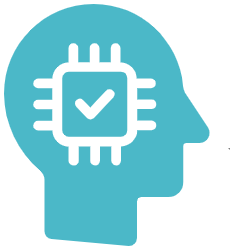In recent years, the pharmaceutical industry has been at the forefront of embracing digital transformation to improve efficiencies, enhance patient engagement, and streamline operations. Among the myriad of technological advancements, Conversational AI stands out as a game-changer, offering innovative solutions to some of the industry’s most pressing challenges. This blog explores the multifaceted roles that Conversational AI can play in revolutionizing the pharmaceutical sector.
Enhancing Customer Service and Support
Conversational AI, through chatbots and virtual assistants, has transformed customer service in the pharmaceutical industry. These AI-driven tools can provide 24/7 support, answering queries about medication usage, side effects, and availability. This immediate access to information improves customer satisfaction and frees up human resources to focus on more complex customer service tasks.
Streamlining Drug Discovery and Development
The drug discovery process is both time-consuming and costly. Conversational AI can accelerate this process by enabling researchers to interact with vast databases using natural language queries. This can significantly reduce the time required to sift through scientific papers and clinical trial data, thereby speeding up the identification of potential drug candidates and understanding their mechanisms of action.
Facilitating Clinical Trials
Recruiting suitable candidates for clinical trials is a challenging and critical aspect of drug development. Conversational AI can automate and personalize communication with potential participants, providing them with information about trials, assessing their eligibility, and answering their questions. This not only improves recruitment rates but also enhances participant engagement and retention in trials.
Personalizing Patient Care
In the era of personalized medicine, Conversational AI can play a pivotal role by delivering tailored health information and recommendations to patients. AI-driven platforms can analyze patient data, including medical history, genetics, and lifestyle, to provide personalized medication regimens, lifestyle adjustments, and health monitoring, thereby improving treatment outcomes.
Ensuring Compliance and Adherence
Medication non-adherence is a significant challenge in healthcare, leading to suboptimal treatment outcomes and increased healthcare costs. Conversational AI can send reminders, provide medication information, and encourage adherence through interactive and engaging dialogs with patients. This proactive approach can significantly improve patients’ compliance with their treatment plans.
Training and Education
Conversational AI can also be an invaluable tool for the ongoing education of healthcare professionals and pharmaceutical staff. AI-driven programs can provide interactive training modules, simulate patient interactions, and keep professionals updated on the latest research findings, drug releases, and regulatory changes.
Navigating Regulatory Compliance
The pharmaceutical industry is heavily regulated, and staying compliant with all regulations is crucial. Conversational AI can assist companies in navigating these complex regulatory landscapes by providing instant access to regulatory documents, guidelines, and updates, ensuring that companies remain compliant with local and international laws.
Conclusion
Conversational AI is not just a futuristic concept but a practical tool that is already making significant inroads in the pharmaceutical industry. By enhancing customer service, streamlining drug development, personalizing patient care, and ensuring compliance, AI-powered conversational platforms are poised to revolutionize the pharmaceutical landscape. As technology continues to evolve, the potential applications of Conversational AI will undoubtedly expand, promising even greater efficiencies and innovations in the field.
The integration of Conversational AI into the pharmaceutical industry is a testament to how technology can be harnessed to improve not just operational efficiencies but also patient outcomes. As we continue to explore the capabilities of AI, the future of pharmaceuticals looks not just innovative but also more inclusive and patient-centric.

